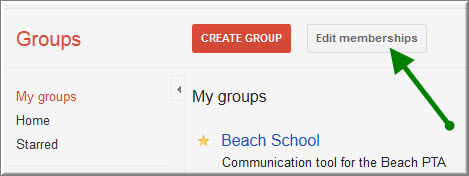How to Optimize Trend of Using Voice-Activated Searches
Just a few short years ago, the common way to search was through typing what you wanted into a search engine, usually Google. That has changed. So how do you capitalize on that trend?
What Makes It Popular?
People are lazy and want things fast. Consumers want their answers quick, concise and accurate without too much effort. If you want to jump on the voice-activated search bandwagon, you have to change how you optimize your website from how you used to do it. Before you do anything, make sure you have a website that loads quickly.
Reasons for Optimizing for Voice Searches
- Increased visibility on featured snippets
When you make a voice inquiry, you will get information from the Web and address. You have to have a strong idea on how voice search queries works to understand the queries that surface featured snippets. You want to spend the time to provide the best answer for the most common snippets.
Marketers can drive credibility to their brand and traffic to the site. The better the service, the more consumers will use it because they think the service is worthwhile.
Knowing the types of queries commonly triggering feature snippets from voice search. Although searchers use the same keywords on mobile devices as they do in desktop searching, the usage of keywords varied. New categories have emerged for voice searching. The old way of searching doesn’t make sense with voice.
- Context of voice search.
According to Google research, people need to be aware of the context in which people are using voice search. In the old way, people would type Holiday Hut hours because it was shorter to type. However, now, it is easier to say, “Ok Google, give me the store hours for Holiday Hut” or “How late is Holiday Hut opened?”
People use different behaviors when using voice search over a typed search. This changes how you must optimize a page. New voice search categories are important to marketers. You will get different results than you get from a typed search.
An example is “near me” queries, which have grown dramatically with mobile search and mostly occur on mobile phones. Consumers are searching for vendors while shopping. It may be a restaurant, a retail store, a place of entertainment, etc.
- Extent of influence for new voice-based media
Because voice search usage is still in the early stage of trending, any optimization done for voice searching is not likely to reach mainstream usage yet.
Optimization can be done without knowing which queries are voice search queries or which queries are mobile queries. Knowing the unique traits regarding voice search will business owners do a better job of knowing what should be available on their website. Authoritative domains tend to produce voice search results significantly more than non-authoritative domains. In fact, the mean Ahrefs Domain Rating of a Google Home result is 76.8. The more back and forth conversations you have will rank you higher in voice searches. In fact, the average voice search result has 1,199 Facebook shares and 44 Tweets.
- Make it simple.
You don’t want the exact query in your title tag. Therefore, forget making a page for each voice search query. The average word count of a voice search result page is 2,312 words. As had been said previously, content is king. If your content ranks high in desktop searches, it also might rank high in voice searches.
Appearing in a Featured Snippet may help you rank in voice search. For example, 40.7 percent of all voice search answers came from a Featured Snippet.”

What should you do to optimize for voice search?
Voice searching is faster than the average loading speed of most Web pages. A typical voice search result is .54 seconds. But the average Web page loads at 2.1 seconds. Search result pages load at 4.6 second.
It appears a site’s loading speed is a more important ranking signal. When you ask a question, you don’t want to stand around waiting for your device to spit out an answer. You want your answer as soon as possible. Therefore, the faster you can provide the information, the higher the rank you will get.
The data suggest that a secured Web site might play an even more important role in voice search than in desktop or mobile search. Google discovered that 70.4 percent of voice search result URLs have adopted HTTPS compared to 50 percent for Google desktop results.
Therefore, implementing HTTPS may improve your chances of appearing as a voice search result. If you take the time to write search engine optimized content, you’re probably also willing to spend the time and money required to set up HTTPS.
Voice Search Results Tend to Be Short and Concise
It’s clear that consumers want voice search answers to be as concise as possible. Google research discovered that the average voice search answer is 29 words.
Author: Usman Raza is a freelance writer, marketing specialist at Christian Marketing Experts and co-founder of Usman Digital Media. When not working, he’s probably spending time with his family. Follow him on Facebook @usmanraza40 and Twitter @usmanintrotech.






